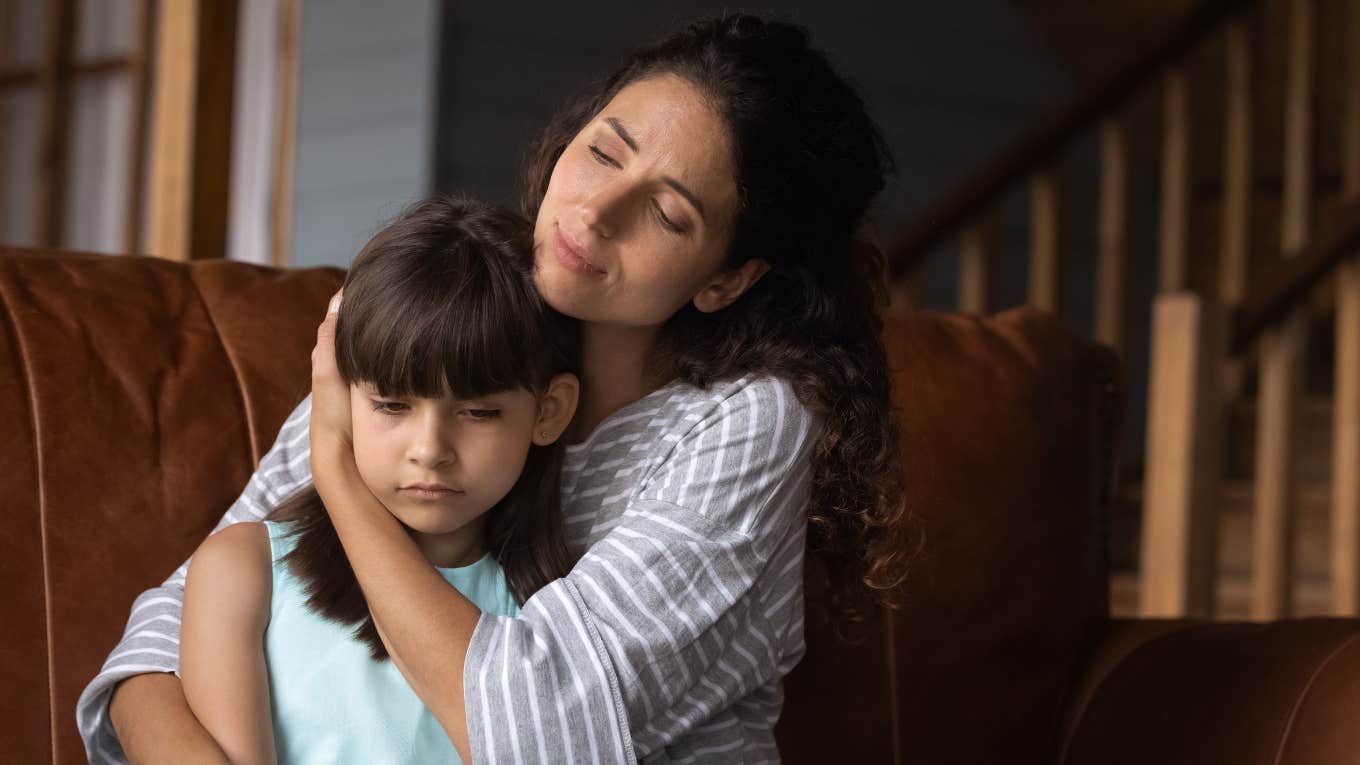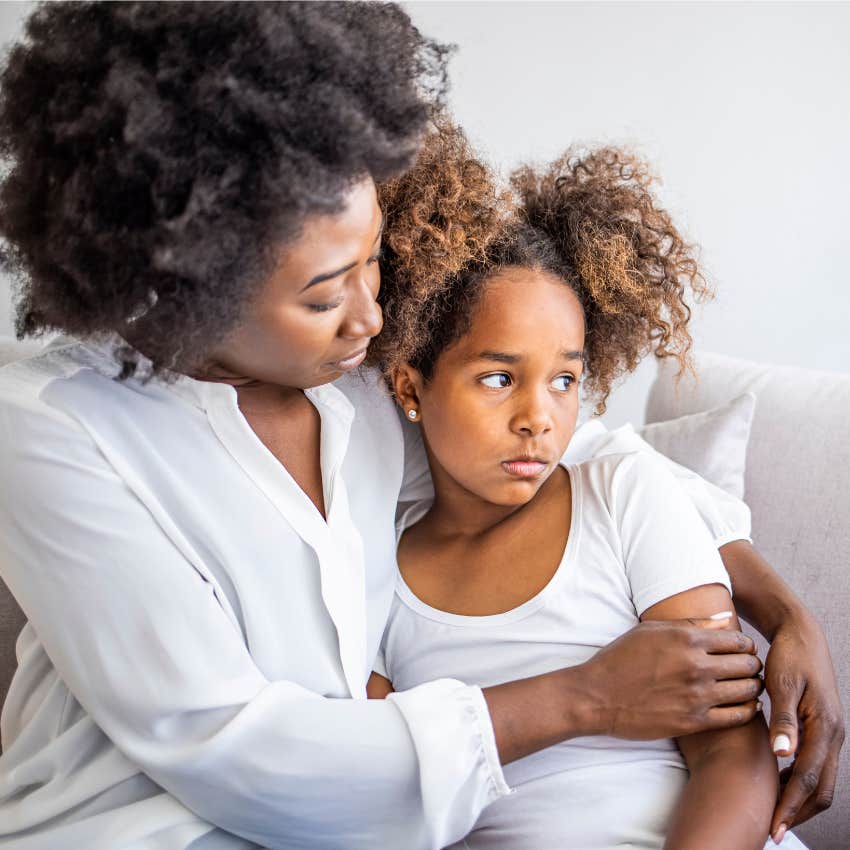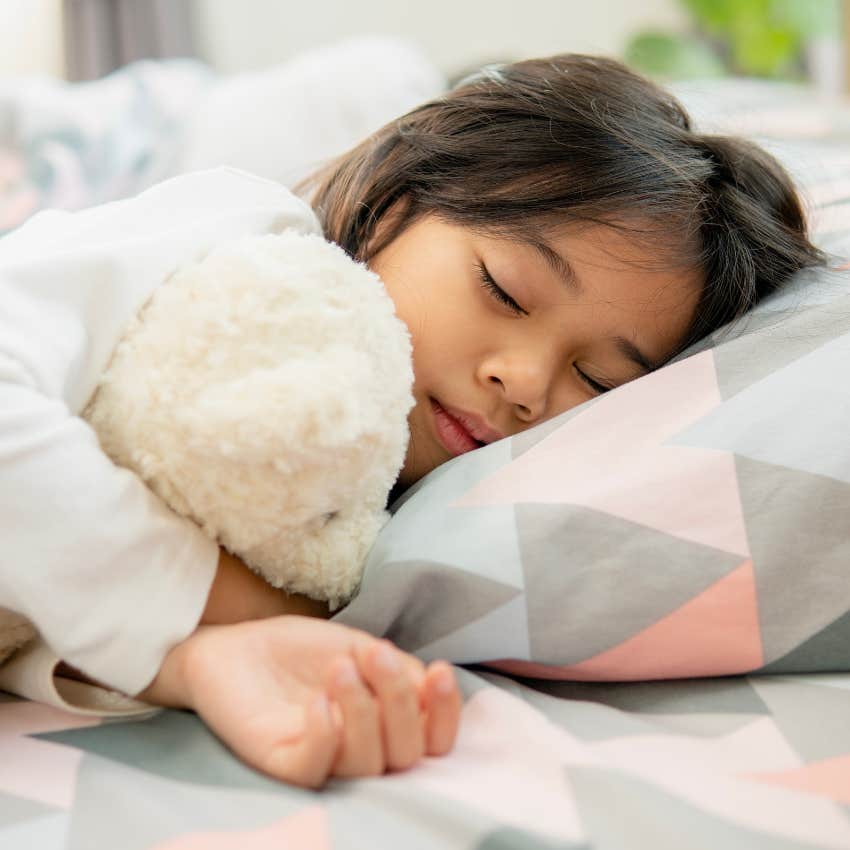Mom Shares 10 Rules With Her Little Girl Before They Move Into A Homeless Shelter
The transition was hard, but they made it together.
 fizkes | Shutterstock
fizkes | Shutterstock There’s an undeniable link between housing insecurity and domestic violence, and finding safe and affordable housing is a major barrier for women and kids who have left abusive situations. Many take refuge in emergency shelters, which address their immediate safety needs.
According to The National Center For Children in Poverty, 80% of mothers with children who are experiencing homelessness had previously experienced domestic violence.
One woman documented her experience living in a shelter with her daughter and how she prepared the little girl for their new living arrangements.
The mom shared 10 important rules with her daughter before they moved into a homeless shelter:
1. Stay together at all times
The mom laid out the first “shelter rule,” telling her daughter, “You must be with me at all times.”
A smile crossed the little girl’s face as she lifted up her arms and cheered, showing just how much she wanted to be with her mom.
The mom laughed, saying, “That’s the rule that I don’t like,” touching on the fact that all parents need space away from their kids, whether to reset themselves emotionally or to just take a break from the constant demands of caregiving.
2. No leaving the bedroom alone
“You cannot leave out the bedroom alone,” the mom said. “If I’m asleep, and you’re hungry, or you have to pee, or you need something to drink, you must wake me up, and then I’ll take you.”
The second shelter rule reinforced the first rule of sticking together, which would appear to be a safety precaution. While the rule is in place for a reason, it also highlights a certain lack of freedom and agency that people in shelters experience.
3. No food or drinks in the bedroom
“We are not allowed to have snacks, candy, meals, or drinks in the bedroom — at all,” the mom explained.
Her daughter asked why, to which she replied, “Because that’s the rule.”
A person in the comments section noted that the rule is meant as a form of pest control: Not allowing food in the bedrooms protects the shelter from being infested by bugs or mice.
4. No recording
“We are not allowed to take photos or record while we’re in the facility,” the mom said, another rule to protect the safety and privacy of people in the shelter.
 Dragana Gordic | Shutterstock
Dragana Gordic | Shutterstock
5. The kitchen, bathroom, and living room are shared spaces
“We have to share the kitchen, bathroom, and the living room with others,” the mom said. “So, we have to take turns.”
The impact of leaving an abusive home can’t be understated, yet living in a shelter isn’t easy by any means. It’s a huge adjustment for adults and kids alike, as they no longer have much claim to space of their own.
In a separate post, the mom shared one way that her daughter was able to find space of her own: in therapy.
“Why do you go to therapy?” the mom asked, to which her daughter replied, “Because it keeps me safe.”
The girl also noted if “something is upsetting me, we can talk about it” during therapy.
“That’s why I like therapy,” she said.
The road to healing after trauma is never easy, and it’s rarely straightforward. By giving her daughter access to a therapist to process her emotions, the mom is giving her the tools she needs to start her healing process.
6. Bedtime curfew is 9 p.m.
“We have to be in our beds by 9 P.M. to go to sleep,” the mom said, a rule her daughter didn’t seem to like.
“That’s creepy,” the little girl said, a statement that made her mom burst out laughing.
The moment of levity highlighted that we can have small joys, even in moments of darkness. Their road ahead might be difficult, but finding humor in hard situations is what helps people survive and push forward.
7. No TVs allowed in the bedroom
Upon hearing this rule, the little girl’s jaw dropped in disbelief. The rule is another example of how drastically their lives were changing, and the ripple effects of those changes affected everything from when and where they were allowed to eat to how they could entertain themselves.
In a separate post, the mom shared that she bought her daughter an iPad.
While the negative effects of kids having too much screen time are well-documented, the girl’s access to an iPad gave her the ability to control one small part of her life: What she’s able to watch. Having an iPad provided a tangible escape from the harder parts of living in a shelter.
8. Lights off at 10 p.m.
“Lights are automatically turned off by staff at 10 p.m.,” the mom explained. “So once they go off, they go off. We can’t turn them back on. They come back on in the morning.”
Again, the rule existed for a reason, yet it likely was a major adjustment for the mom and her daughter.
 FAMILY STOCK | Shutterstock
FAMILY STOCK | Shutterstock
9. Don’t share private information
“Please do not tell other kids or adults anything about me or anything we are going through,” the mom said, emphasizing the importance of keeping their private lives private.
“Please find healthy conversations to talk about,” she continued. “We’re not the cops, we’re not a private investigator, we don’t need to be in their business, in their personal stuff, with their life.”
This rule acted as a safety measure, allowing the mom and daughter to protect themselves.
10. Use headphones with all electronics
The last rule the mom listed was another rule related to personal space and screen time.
She let her daughter know the shelter’s rule for using devices, which was either to use headphones or turn the volume down.
It seems as though the rule was made as an effort to control noise levels in the shelter. While the rule takes into account being considerate of others, it’s also an example of a loss of freedom, however small.
Emergency shelters are a crucial part of providing domestic violence victims with a safe place to land; they aren’t a permanent solution.
They can often be a challenging place to live, as the mom pointed out in another post.
She expressed her frustration with the shelter’s rules and inconsistencies, saying how hard it was “To go somewhere where you’re supposed to be supported the most, and they’re talking about [how] they’ve got all these different programs and different things to help you get on your feet and get out [of the] shelter. They give you 45 days, but then you get there, and it’s something else.”
“They’re not even helping you get on your feet,” she said. “They’re not even helping you crawl.”
“I get that this is a shelter and y’all are helping out, but this [isn’t] really help,” she exclaimed before declaring she was ready to leave despite not having any place to go.
“I see why people go back to their abuser,” she said.
The National Network to End Domestic Violence noted the importance of emergency shelters while emphasizing the need to extend access to transitional housing, which provides short-term housing and supportive services to help people find permanent housing and truly begin to rebuild their lives.
The intersection of domestic violence and homelessness is complex and difficult to untangle, yet what’s clear is that the more actual support that people have, the more they’re able to take the steps they need to find their version of safety.
If you or someone you know is experiencing domestic violence or the threat of domestic violence, call the National Domestic Violence Hotline for help at 1-800-799-SAFE (7233), or go to www.thehotline.org
Alexandra Blogier is a writer on YourTango's news and entertainment team. She covers social issues, pop culture, and all things to do with the entertainment industry.

